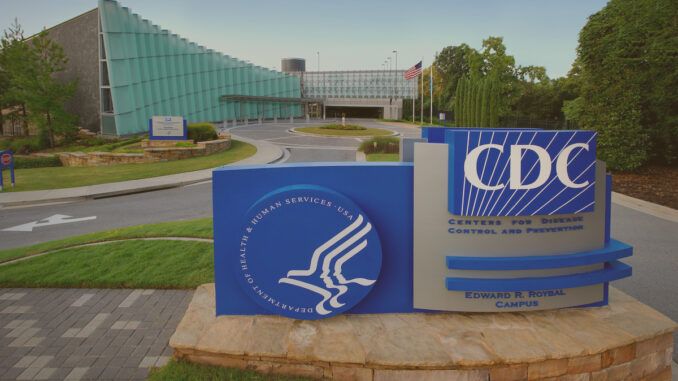
Last week, the Centers for Disease Control and Prevention (CDC) outlined an expected change to the ‘covid vaccine’ schedule.
Along with changes for people with weak immune systems the CDC also signalled that a different alteration maybe coming for the general population in an effort to cut the number of post-vaccination heart inflammation cases.
Unfortunately, rather than putting a stop to the jabs, panel members said they hoped that any changes made would help convince the unvaccinated people to get jabbed.

BYPASS THE CENSORS
Sign up to get unfiltered news delivered straight to your inbox.
You can unsubscribe any time. By subscribing you agree to our Terms of Use
The Epoch Times reports: The other likely change would apply to the general public and deals with the length of time that elapses between the first and second shot of the mRNA vaccines. Both have a two-dose primary schedule.
At present, the second Pfizer dose is recommended around 21 days after the first, and the second Moderna dose is recommended around 28 days after the initial shot. However, surveillance data show that among many age groups, particularly young males, who have received the vaccines, there has been a higher than expected rate of heart inflammation.
Data from Canada and England, which have both extended the interval, suggest an extended time period between the first and second doses increased vaccine effectiveness and lowered rates of myocarditis and pericarditis, two forms of heart inflammation that have cropped up following mRNA vaccination.
“The longer interval resulted in lower myocarditis rates, whereas the shorter interval had higher myocarditis and pericarditis rates,” said Dr. Bryna Warshawsky of the Public Health Agency of Canada.
Dr. Grace Lee, a medical officer at the Lucile Packard Children’s Hospital and the advisory panel’s chair, said the data presented “are fairly convincing that an extended interval is not only potentially safer from a myocarditis standpoint, but also potentially more effective.”
The data pertain to when Delta was the dominant variant in much of the world. Omicron displaced Delta in December 2021 in the United States.
Some countries have halted or curtailed the use of the mRNA vaccines, particularly Moderna’s, among youths due to the heart inflammation issues, but U.S. health authorities have so far continued to recommend the shots for all Americans 5 and older, asserting the vaccines prevent more hospitalizations than the heart inflammation cases they cause.
The panel’s COVID-19 vaccines working group, after analyzing altered vaccine schedules from various countries, endorsed an interval of eight weeks between the first and second dose of an mRNA vaccine primary series. The CDC hasn’t yet decided whether to follow the advice.
If changed, the revised schedule could affect millions of people. Some 33 million Americans aged 12 to 39 remain unvaccinated, as well as tens of millions of Americans in older age groups. It would also push back booster shots, which are currently recommended five months after the Moderna or Pfizer primary series, and two months after the initial Johnson & Johnson shot.
Dr. Walid Gellad, a professor of medicine at the University of Pittsburgh, called the expected change “a big deal.”
At the same time, it is “troubling” that it “took so long for US policymaking to catch up to other countries,” Gellad, who is not on the panel, wrote on Twitter.


